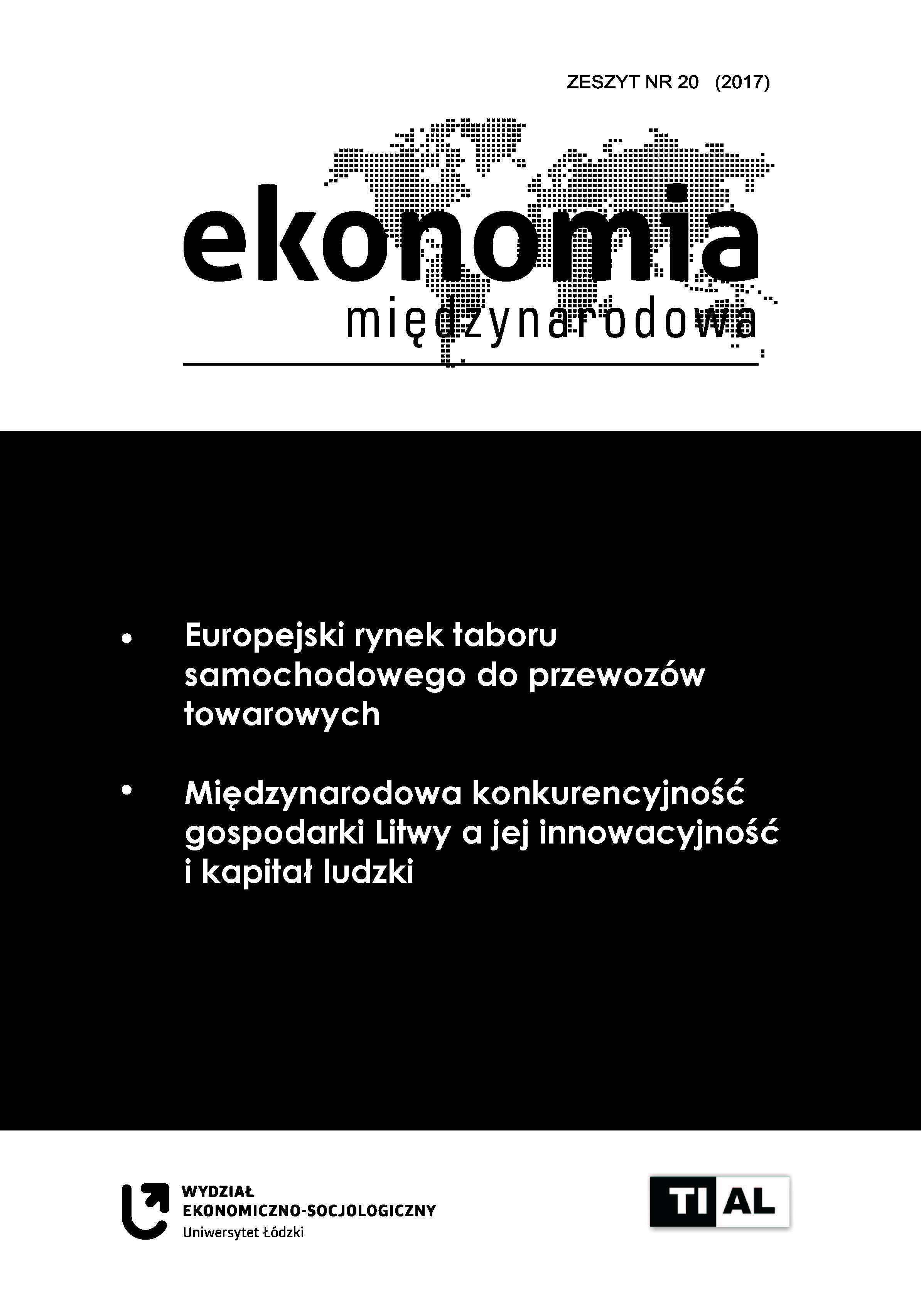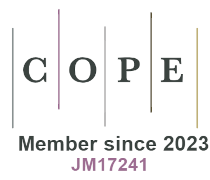Zmiany na europejskim rynku dostaw taboru samochodowego do przewozów towarowych
DOI:
https://doi.org/10.18778/2082-4440.20.01Słowa kluczowe:
Transport 4.0, dostawca i odbiorca taboruAbstrakt
W artykule opisano nowe tendencje, które można zaobserwować ostatnio na europejskim rynku pojazdów użytkowych do przewozów towarowych. Procesy te są głównie spowodowane tzw. czwartą rewolucją przemysłową, która doprowadziła do powstania Przemysłu 4.0 oraz związanych z nim: Logistyki 4.0 i Transportu 4.0. Zmiany te w znacznym stopniu wpływają na działalność – funkcjonowanie wszystkich stron włączonych w tę część biznesu – dostawców taboru, przewoźników, zleceniodawców.
Bibliografia
Baur C., Wee D. (2015), Manufacturing’s next act, McKinsey & Co., www.mckinsey.com/business-functions/operations/our-insights/manufacturings-nextact (data dostępu 05.11.2017).
Google Scholar
Bernsmann A., Clausen U., Heinrichmeyer H., Stütz S. (2016), ZF FUTURE STUDY 2016, Last Mile Logistics, Fraunhofer-Institut für Materialfluss und Logistik IM.
Google Scholar
Brach J. (2017), Mobilność 4.0, Pojazd Użytkowy 4.0 oraz Transport 4.0 – kwestie definicyjne i praktyczne, materiały konferencyjne: XX Konferencja NaukowaTranSopot 2017, Wyzwania Rozwoju Transportu w XXI wieku, Sopot, w druku.
Google Scholar
Continental, materiały wewnętrzne, 2017.
Google Scholar
DAF, materiały wewnętrzne, 2017.
Google Scholar
The Future is Smart – Image Processing is an Important Component of Industry 4.0, Basler AG, www.baslerweb.com/en/vision-campus/markets-and-applications/image-processing-industry-4-0/ (data dostępu 05.11.2017).
Google Scholar
Heinrichmeyer H. (2017), Structural Planning of Networks for Transport Service Providers, Fraunhofer Institute for Experimantal Software Engineering,www.iml.fraunhofer.de/en/fields_of_activity/transport_logistics/topics_transport_logistics/networkplanning.html (data dostępu 05.11.2017).
Google Scholar
Hülsmann T. (2015), Logistics 4.0 and the Internet of Things, materiały pokonferencyjne: Platforms for connected Factories of the Future, http://ec.europa.eu/information_society/newsroom/image/document/2015-44/8_huelsmann_11945.pdf (data dostępu 05.11.2017).
Google Scholar
Idea Bank, Happy Miles. Pierwszy leasing liczony kilometrami!, www.ideabank.pl/leasing-na-kilometry-happy-miles#miles3 (data dostępu 05.11.2017).
Google Scholar
Jeschke S. (2016), Quo Vadis Logistik 4.0. Changes and Future Trends in Transportation and Logistics, materiały pokonferencyjne: Transporeon NetworkingEvent, Wolkenburg/Köln, www.ima-zlw-ifu.rwth-aachen.de/fileadmin/user_upload/INSTITUTSCLUSTER/Publikation_Medien/Vortraege/download//Quo_vadis_Logistik4.0_17March2016.pdf (data dostępu 05.11.2017).
Google Scholar
Jeschke S., Haberstroh M., Meisen T. (2014), Mobility 4.0: Distributed Intelligence for Future Transportation, materiały pokonferencyjne: Zukunft imTransportverkehr, Daimler AG, Berlin, www.ima-zlw-ifu.rwth-aachen.de/fileadmin/user_upload/INSTITUTSCLUSTER/Publikation_Medien/Vortraege/download//Daimler_3July2014.pdf (data dostępu 05.11.2017).
Google Scholar
Kagermann H., Wahlster W., Helbig J. (2013), Recommendations for implementing the strategic initiative INDUSTRIE 4.0, acatech – National Academy ofScience and Engineering, www.acatech.de/fileadmin/user_upload/Baumstruktur_nach_Website/Acatech/root/de/Material_fuer_Sonderseiten/Industrie_4.0/Final_report__Industrie_4.0_accessible.pdf (data dostępu 05.11.2017).
Google Scholar
Kupczyk K. (2016), Zmiana modeli biznesowych na rynku medialnym w warunkach jego ucyfrowienia [w:] A. Kuźmińska-Haberla, K. Kupczyk (red.), Ekonomia i międzynarodowe stosunki gospodarcze, Seria Debiuty Studenckie, UEWrocław, Wrocław.
Google Scholar
Löffler M., Tschiesner A. (2013), The Internet of Things and the future of manufacturing, McKinsey & Co., www.mckinsey.com/business-functions/digitalmckinsey/our-insights/the-internet-of-things-and-the-future-of-manufacturing (data dostępu 05.11.2017).
Google Scholar
MacDugall W. (2014), INDUSTRIE 4.0. Smart Manufacturing for the Future, Germany Trade & Invest, www.gtai.de/GTAI/Content/EN/Invest/_Shared-Docs/Downloads/GTAI/Brochures/Industries/industrie4.0-smart-manufacturing-for-the-future-en.pdf (data dostępu 05.11.2017).
Google Scholar
Ruoff D. (2016), Industrie 4.0 – mit neuen Technologien zu innovativen Geschäftsmodellen [w:] M. Krupp, P. Richard, F. Waibel (red.), Fallstudien Der Schwäbischen Logistikwirtschaft, Hochschule Augsburg, University ofApplied Science, Augsburg.
Google Scholar
Trapp M. (2017), Industry 4.0. Everyone is talking about Industry 4.0 – but what does this actually mean?, Fraunhofer Institute for Experimantal SoftwareEngineering, www.iese.fraunhofer.de/en/innovation_trends/industrie40.html(data dostępu 05.11.2017).
Google Scholar
Weiss Ch. (2016), Wirtschaftskriminalität – Steigendes Angriffsrisiko durch Realisierung von Industrie 4.0 [w:] M. Krupp, P. Richard, F. Waibel (red.), Fallstudien Der Schwäbischen Logistikwirtschaft, Hochschule Augsburg, Universityof Applied Science, Augsburg.
Google Scholar
Pobrania
Opublikowane
Jak cytować
Numer
Dział
Licencja

Utwór dostępny jest na licencji Creative Commons Uznanie autorstwa – Użycie niekomercyjne – Bez utworów zależnych 4.0 Międzynarodowe.









